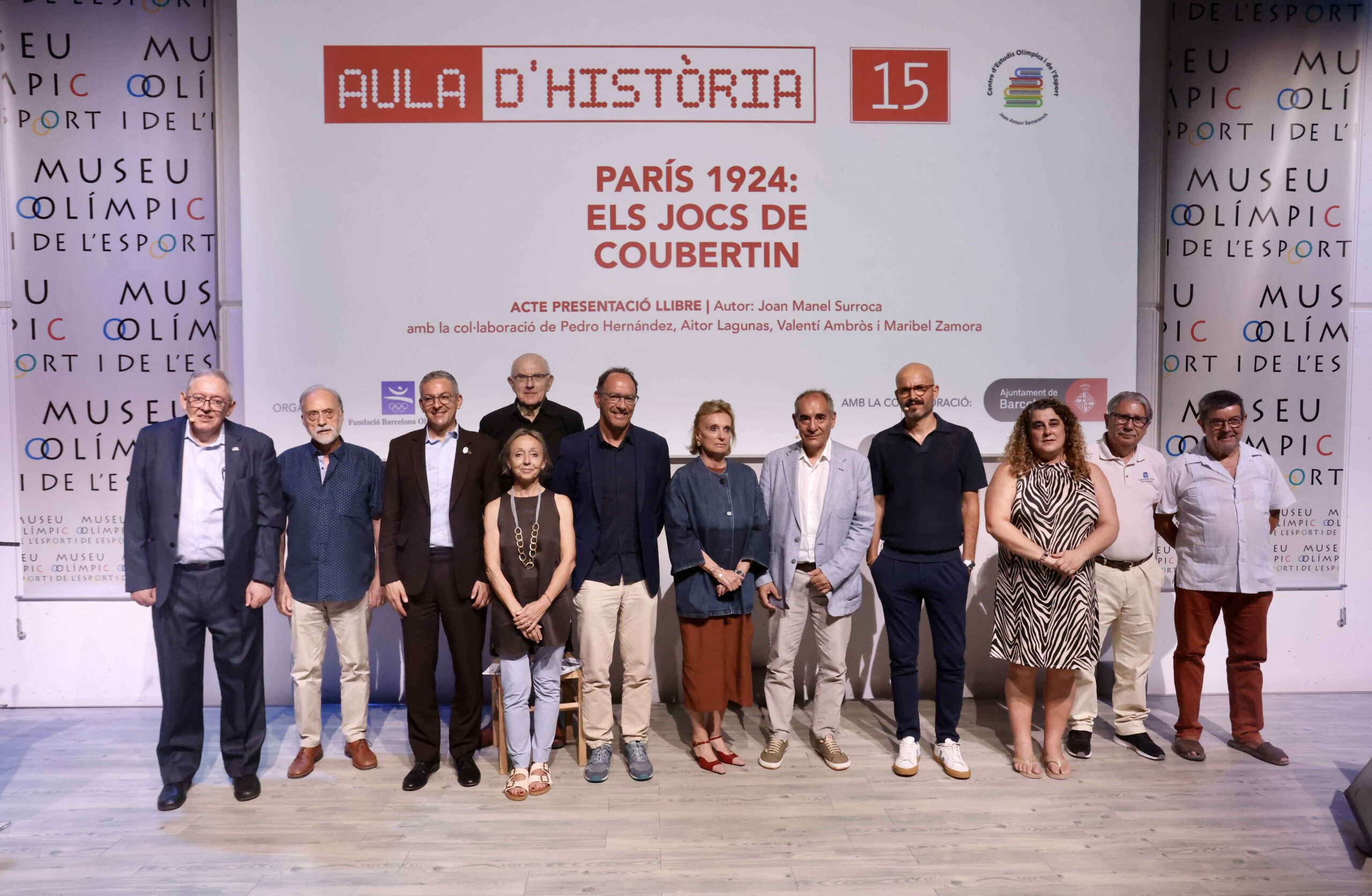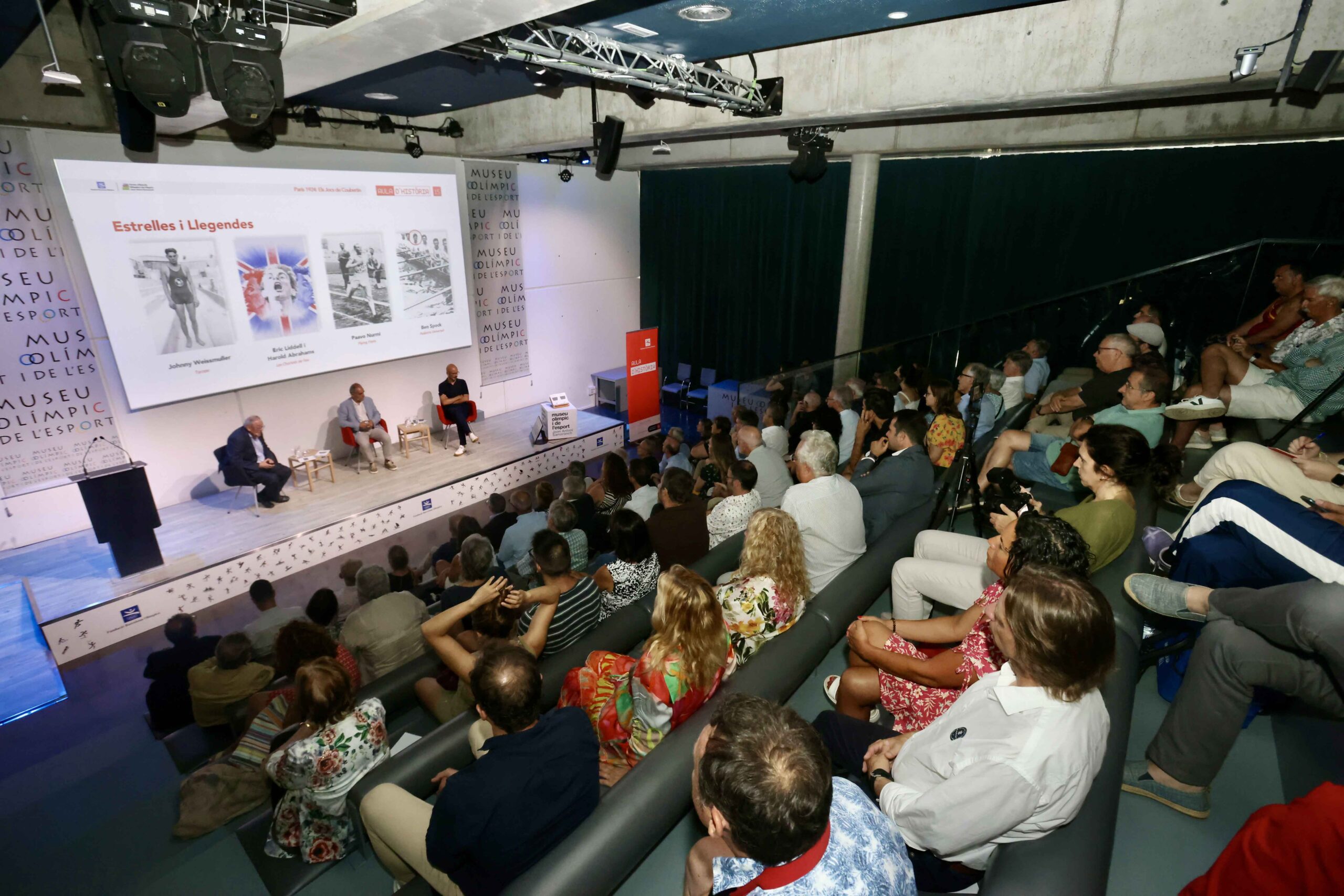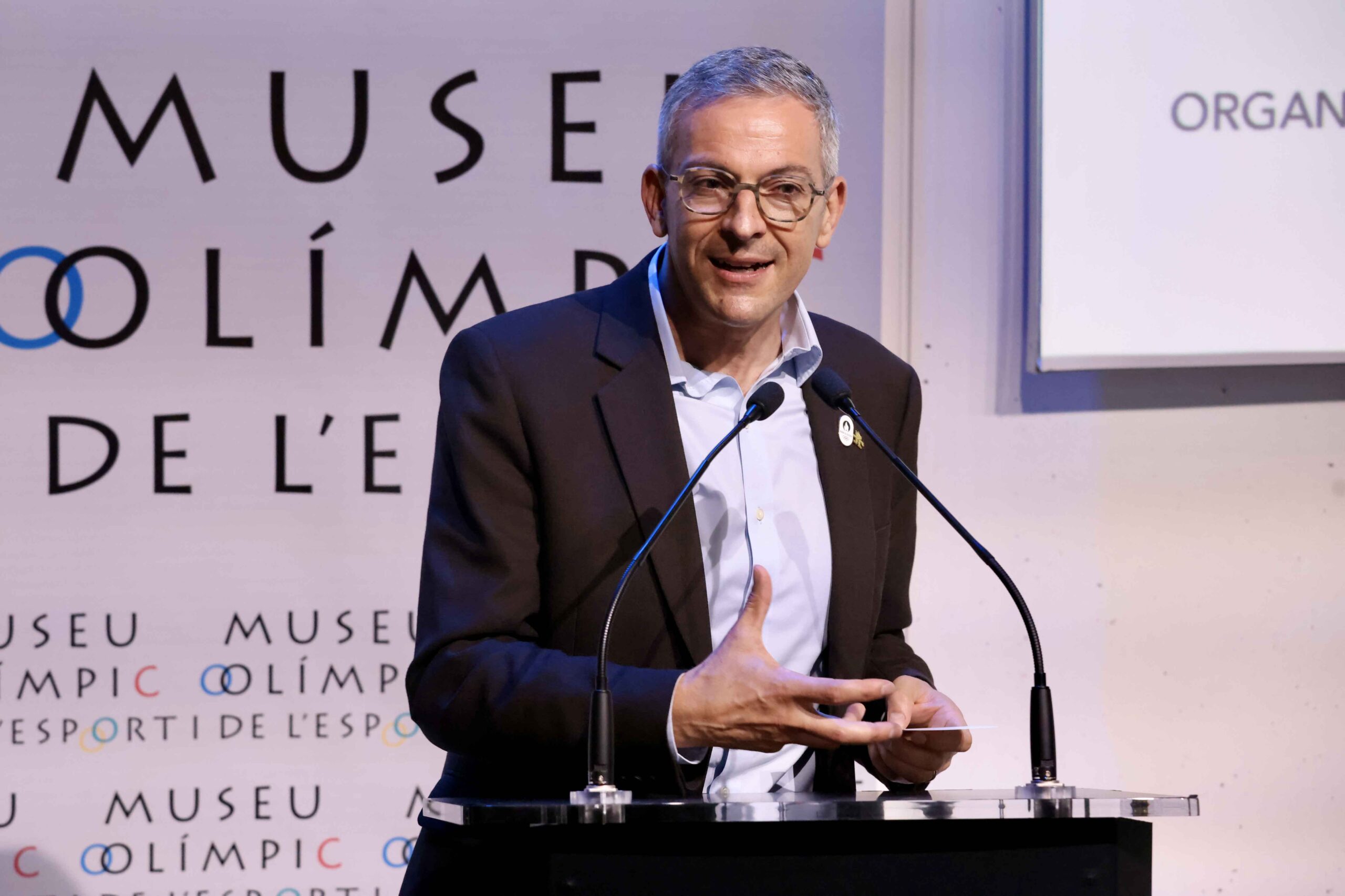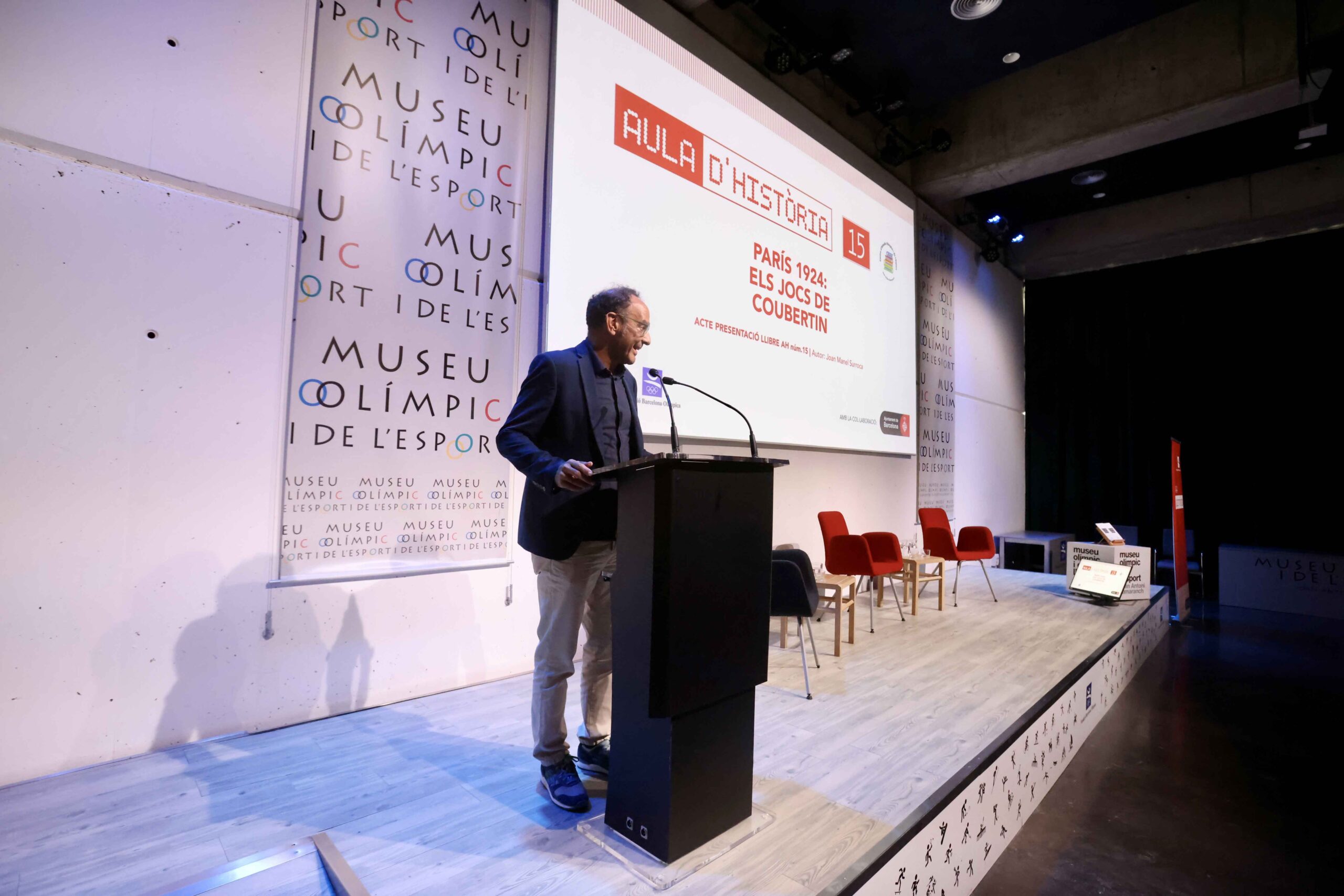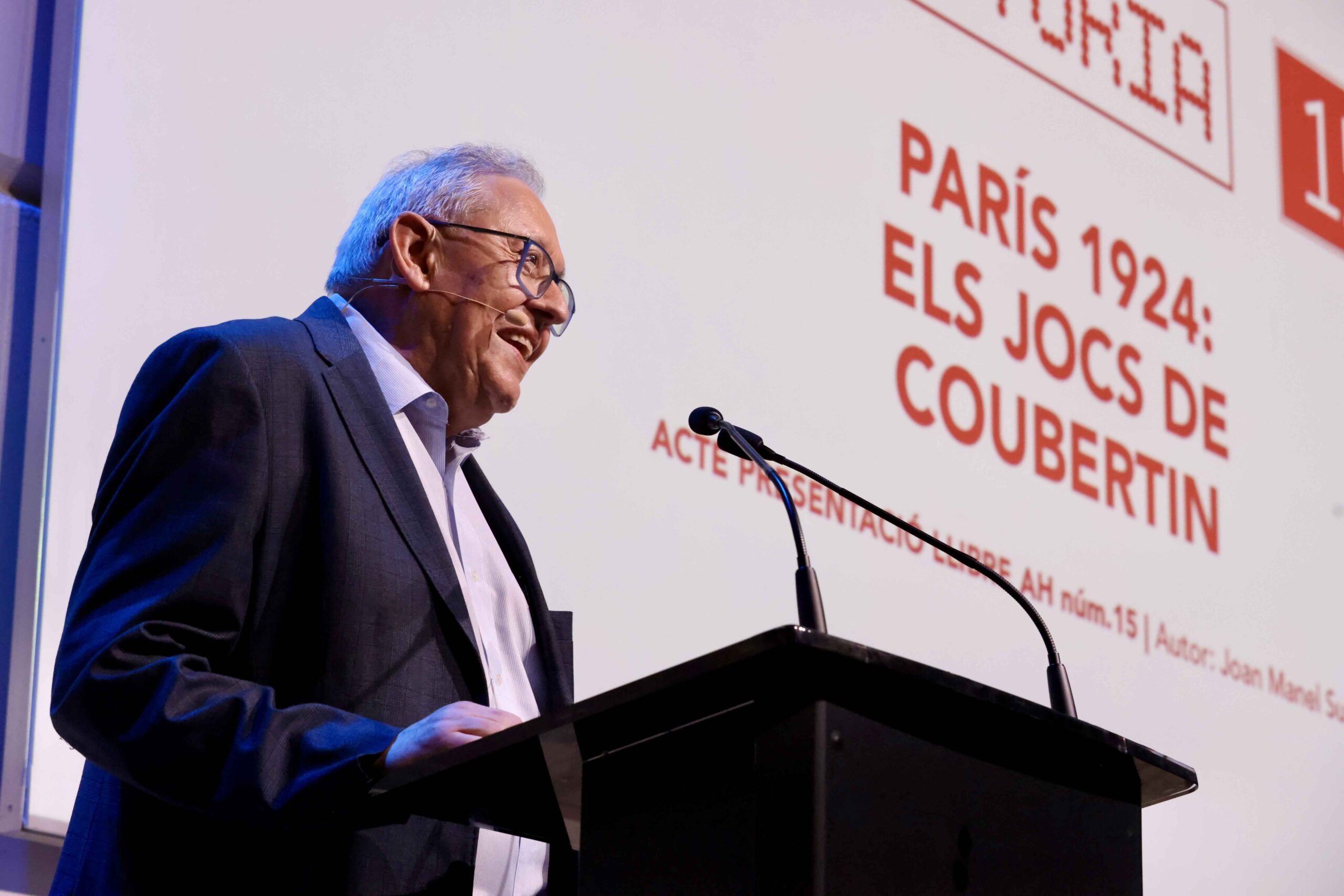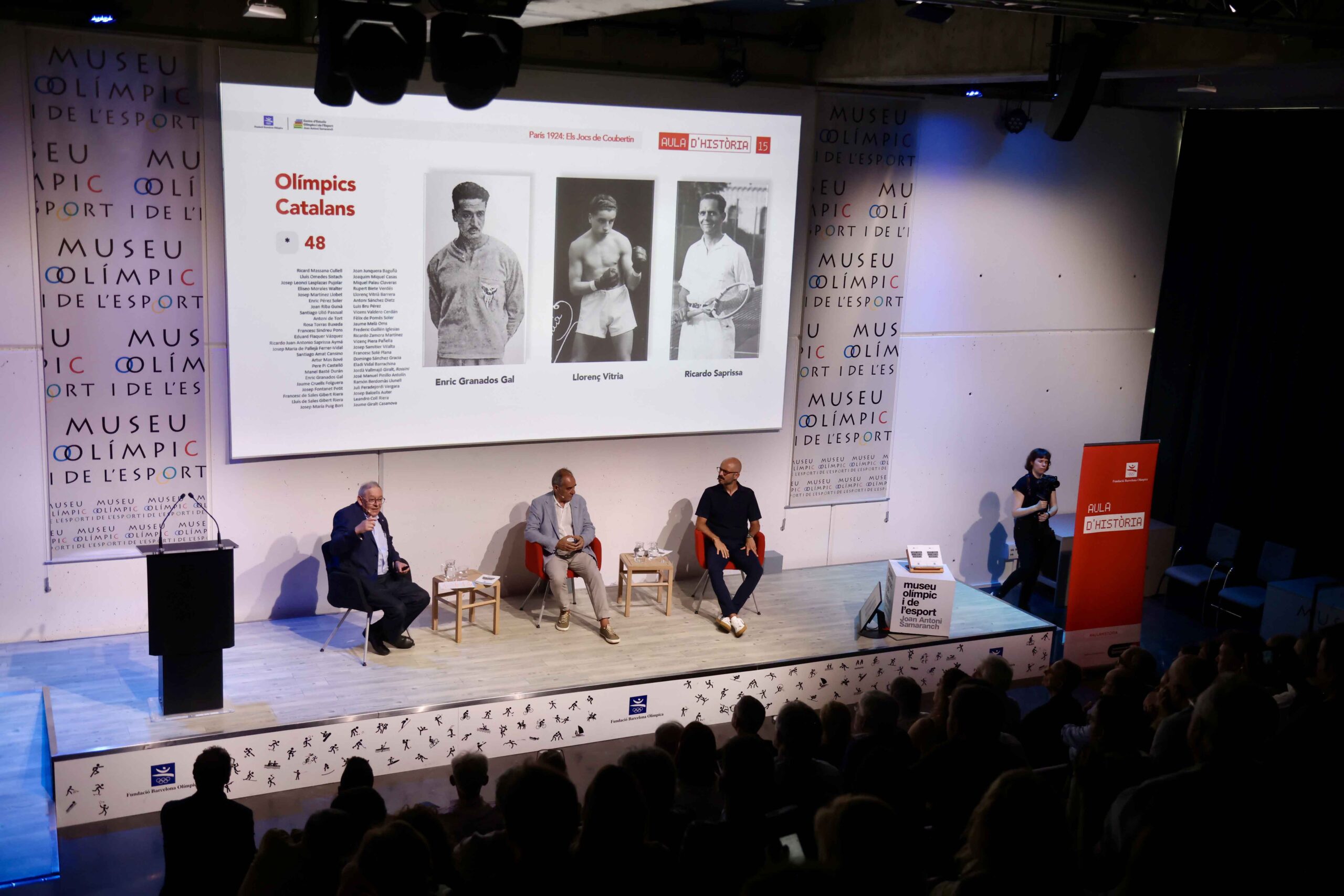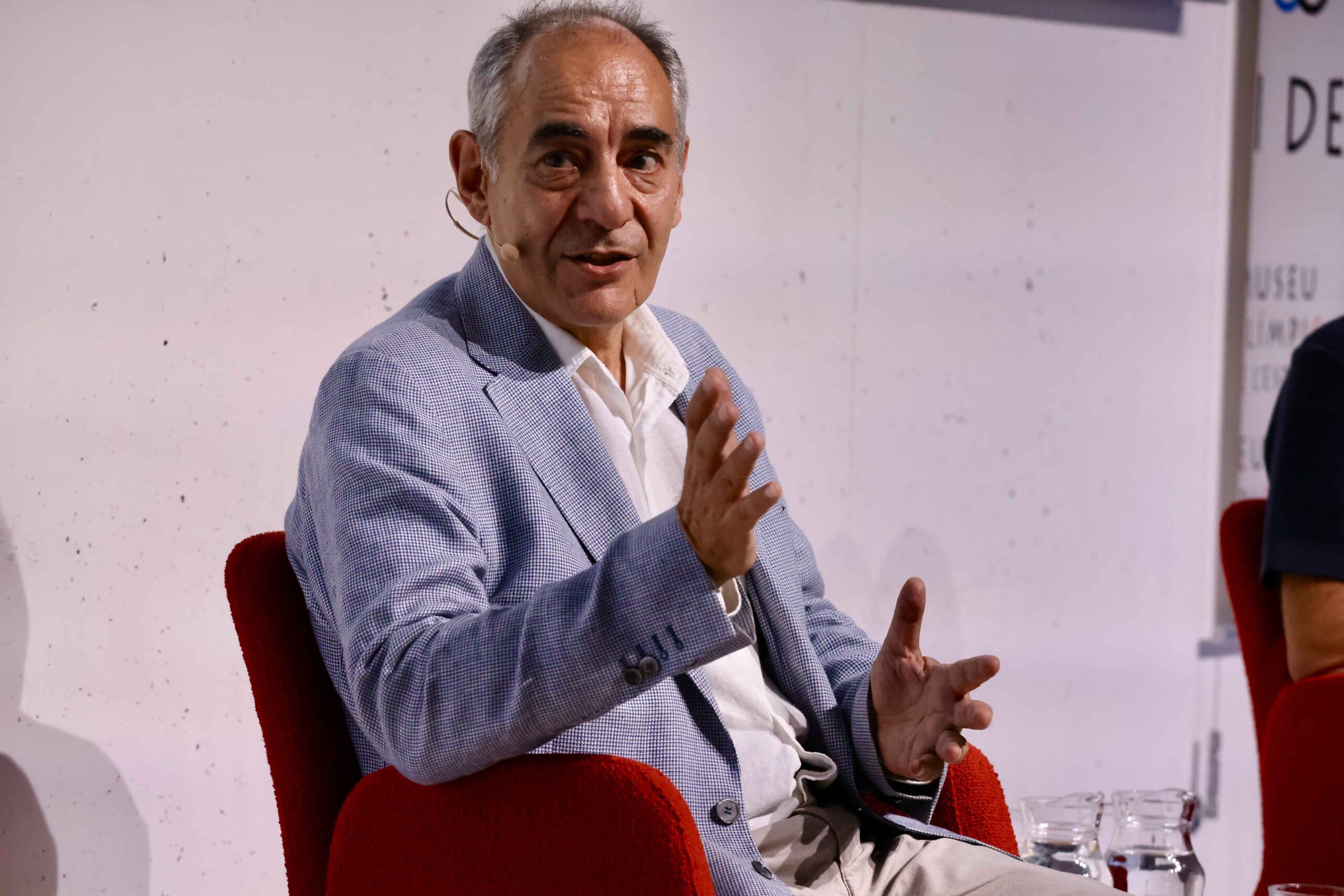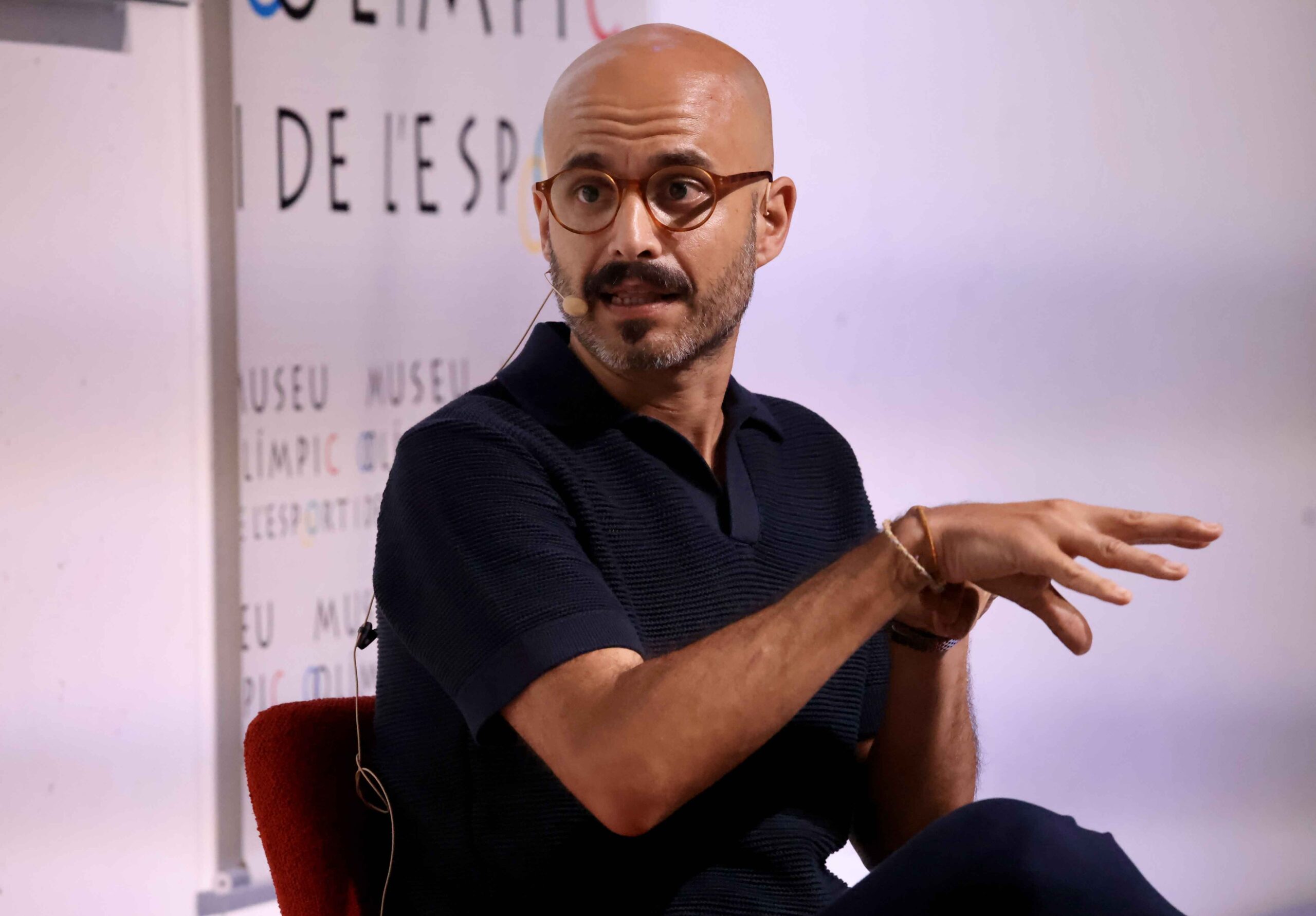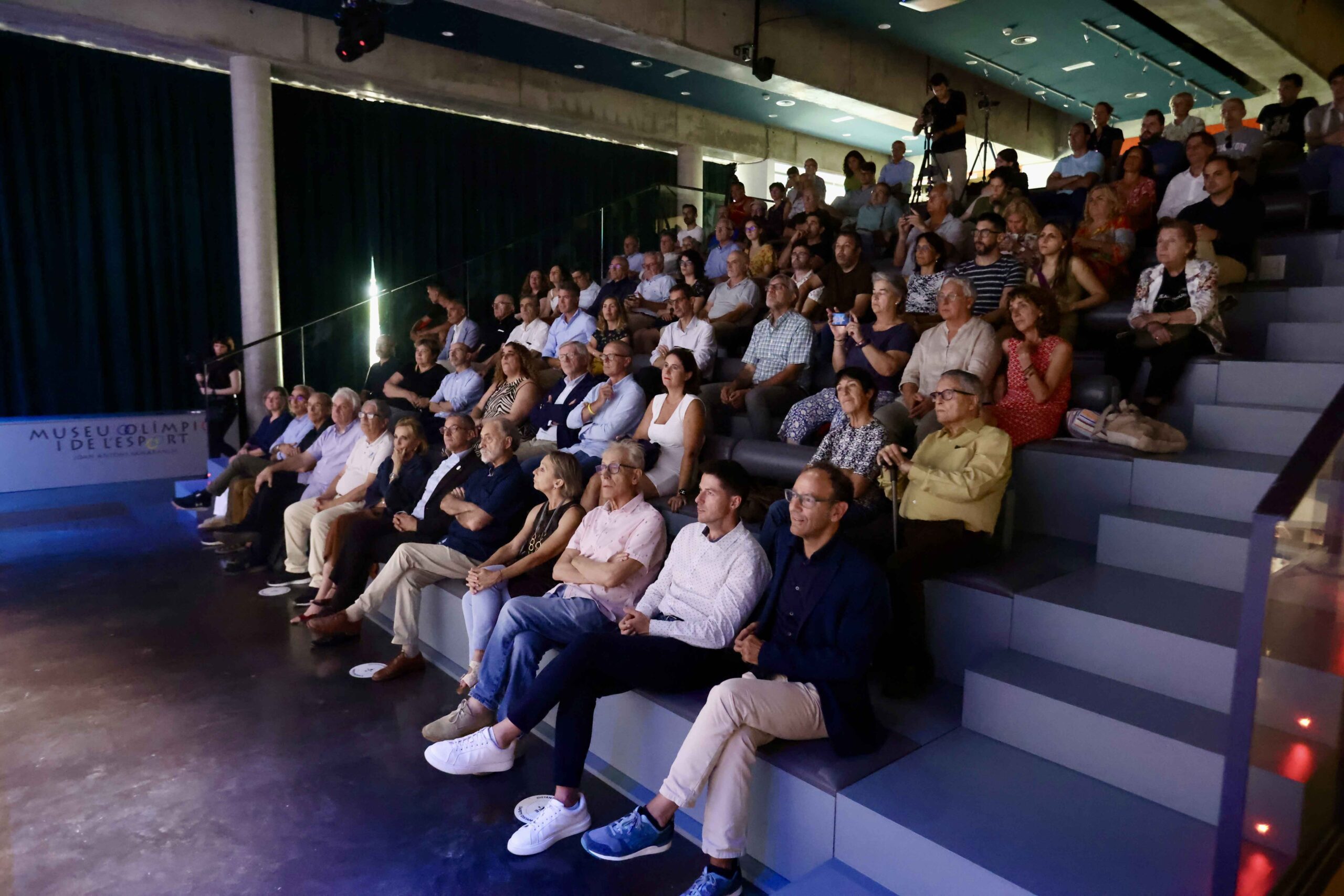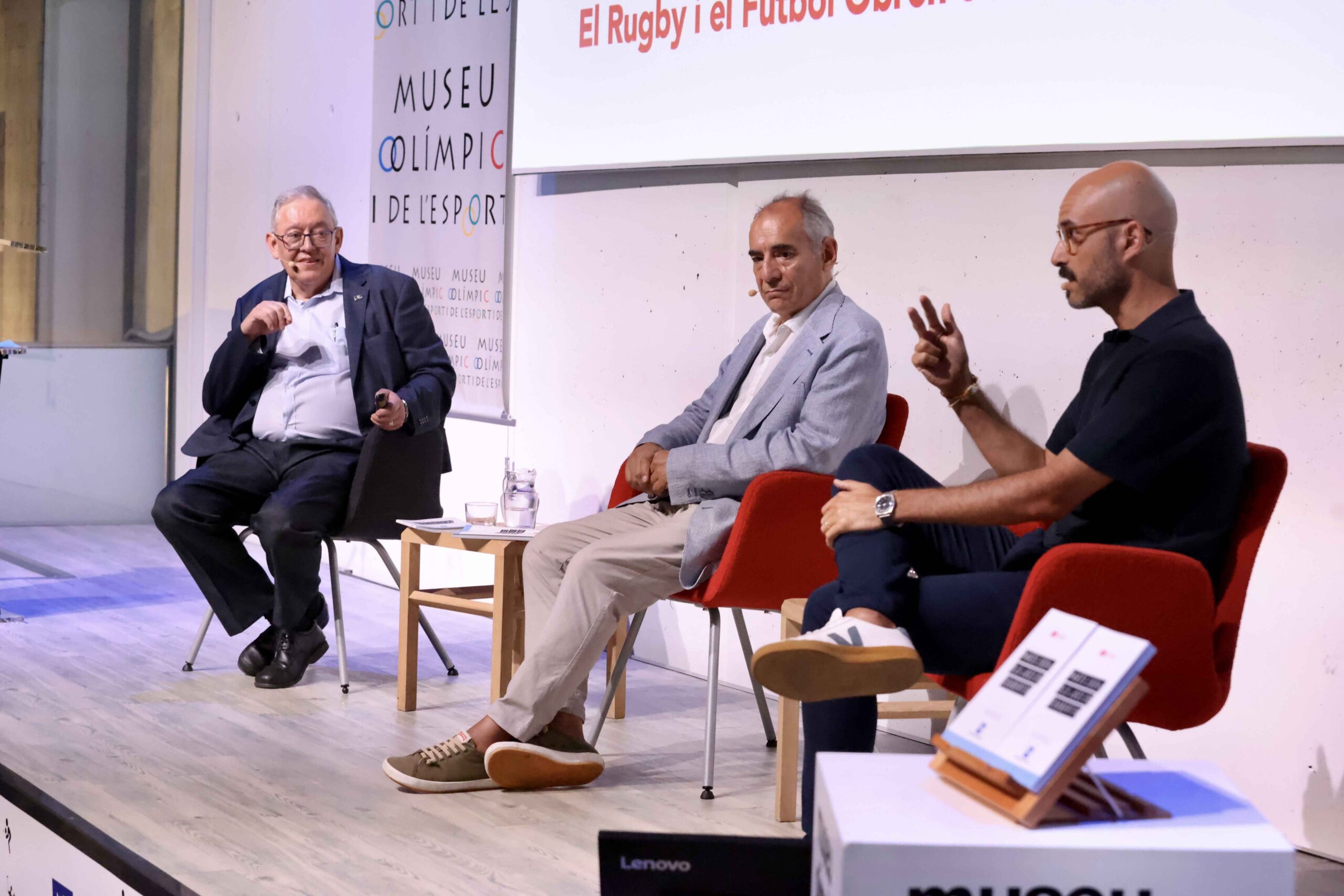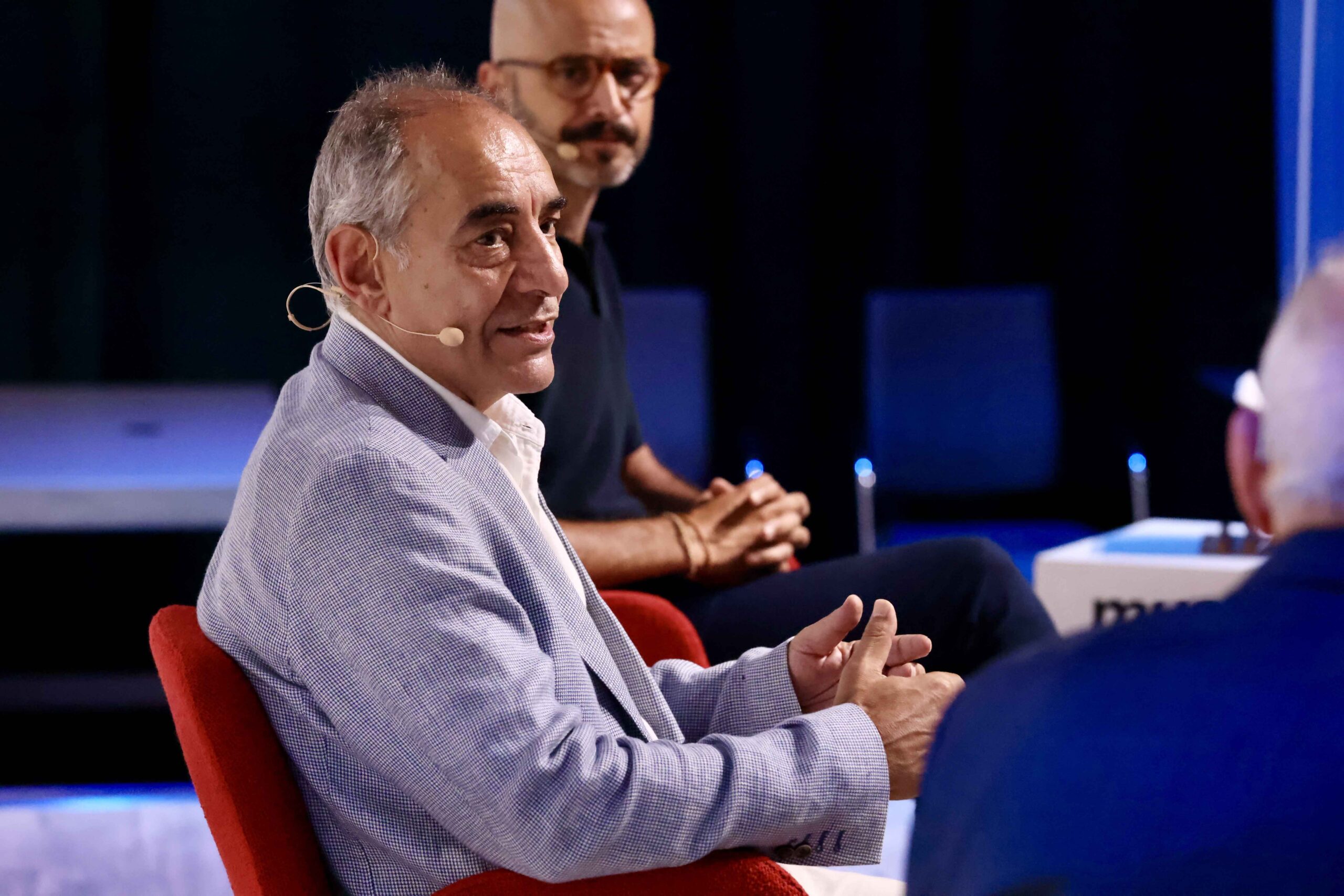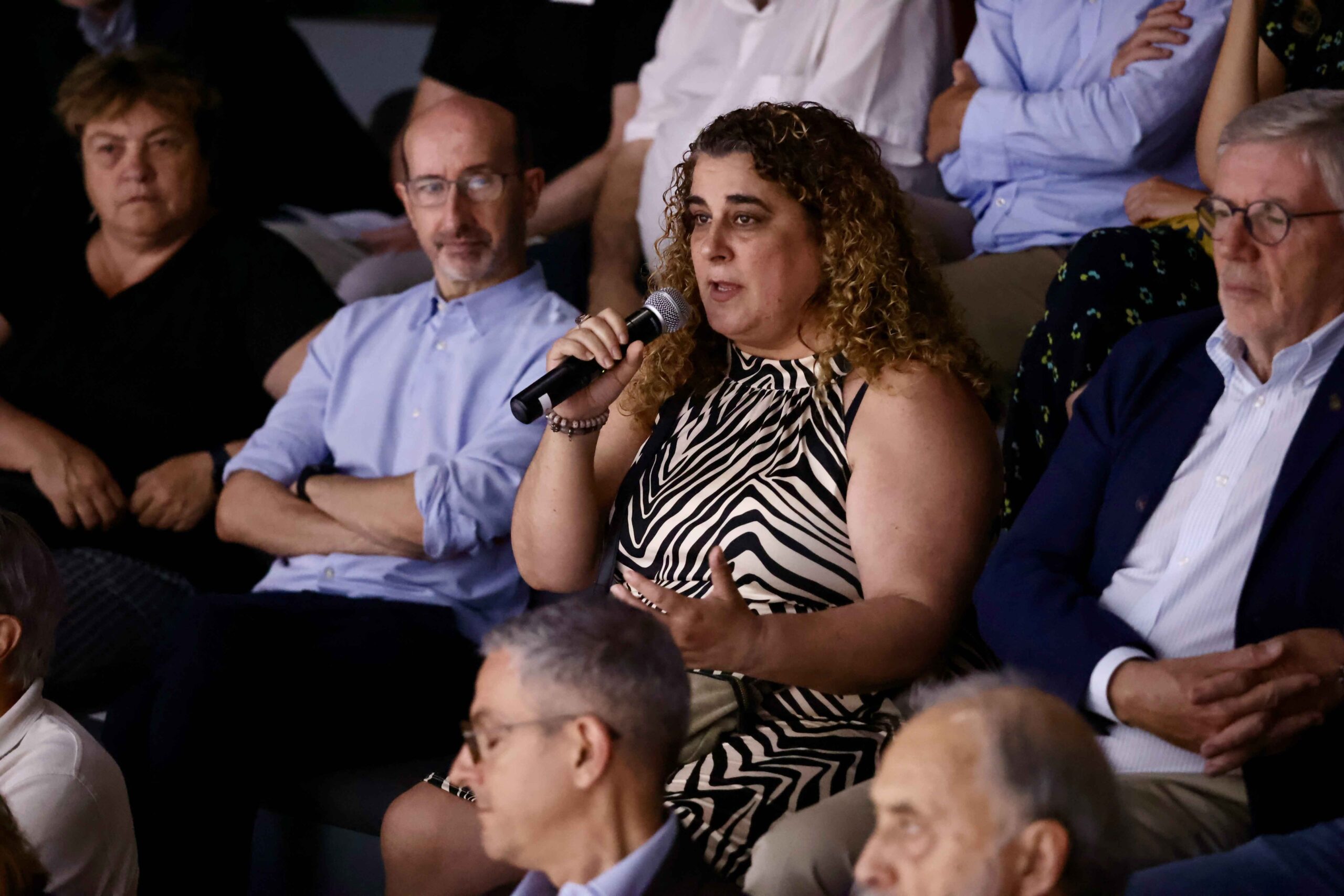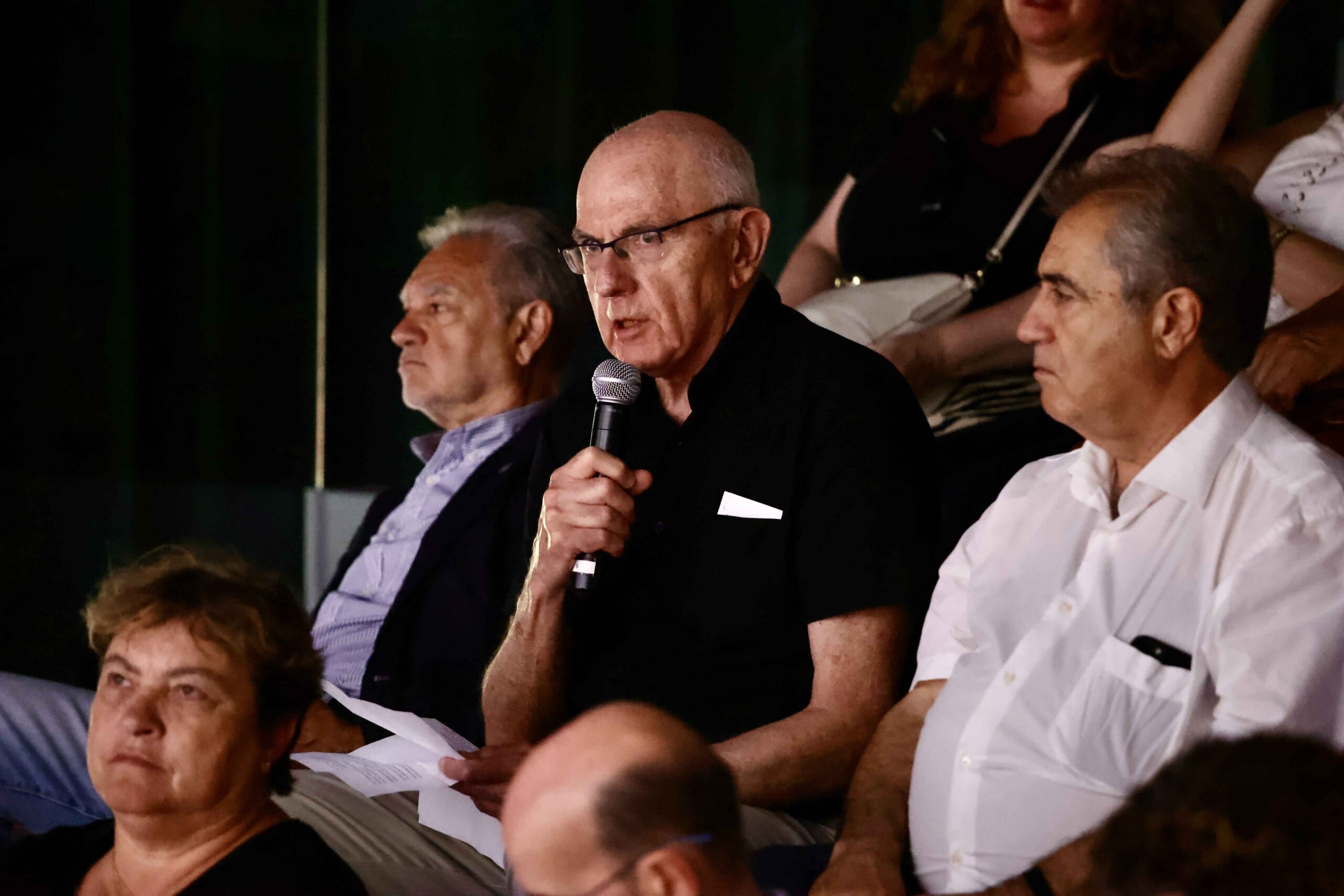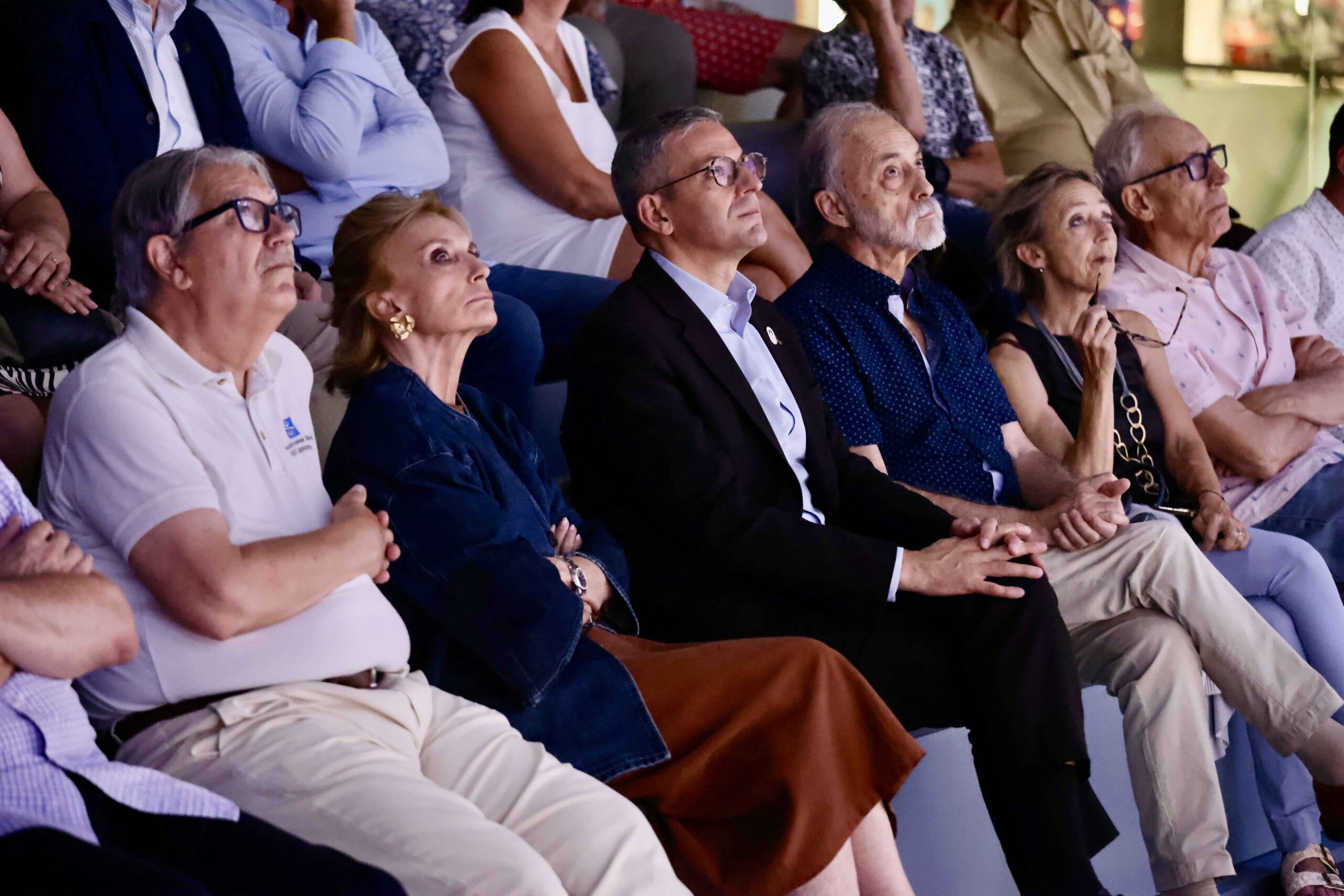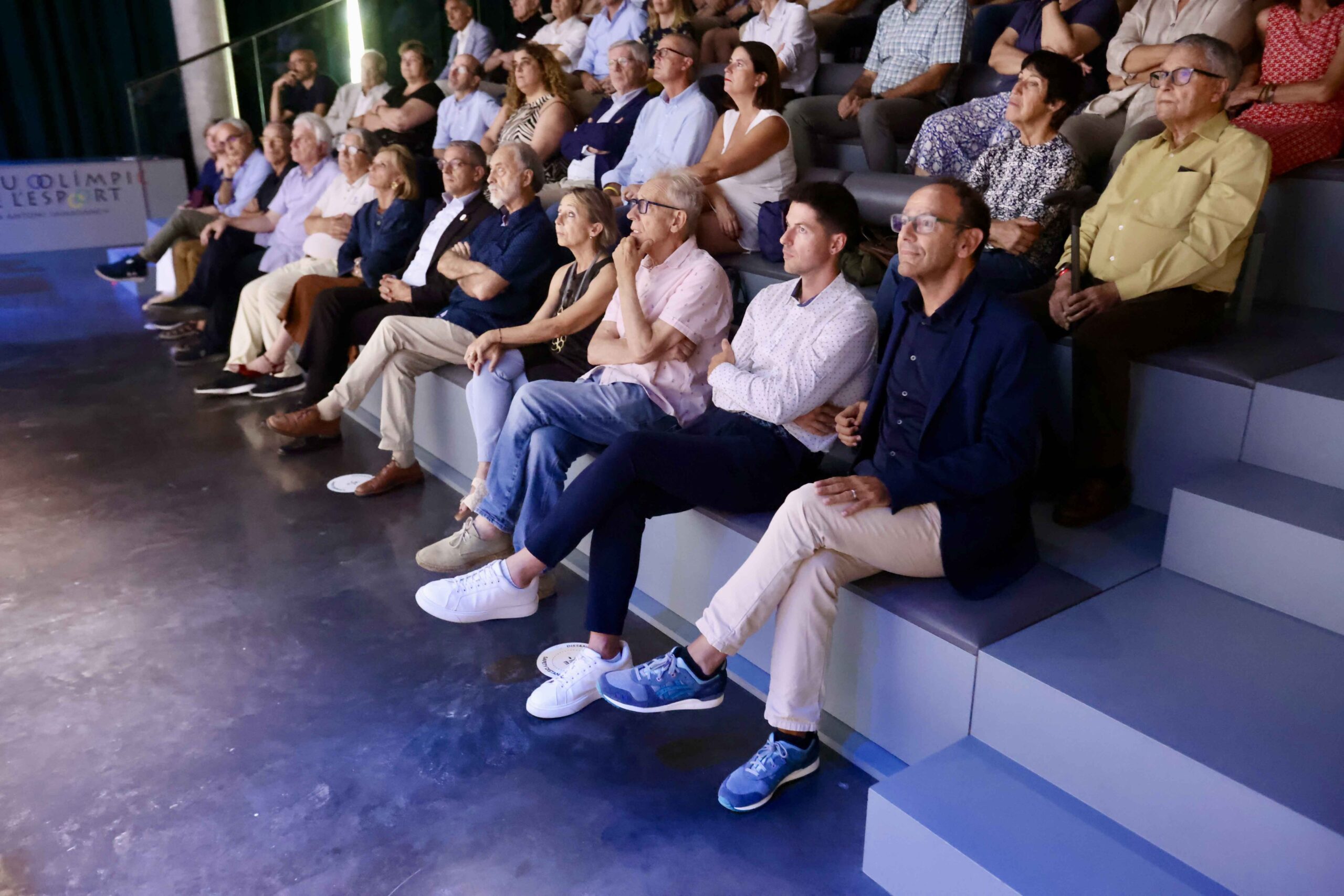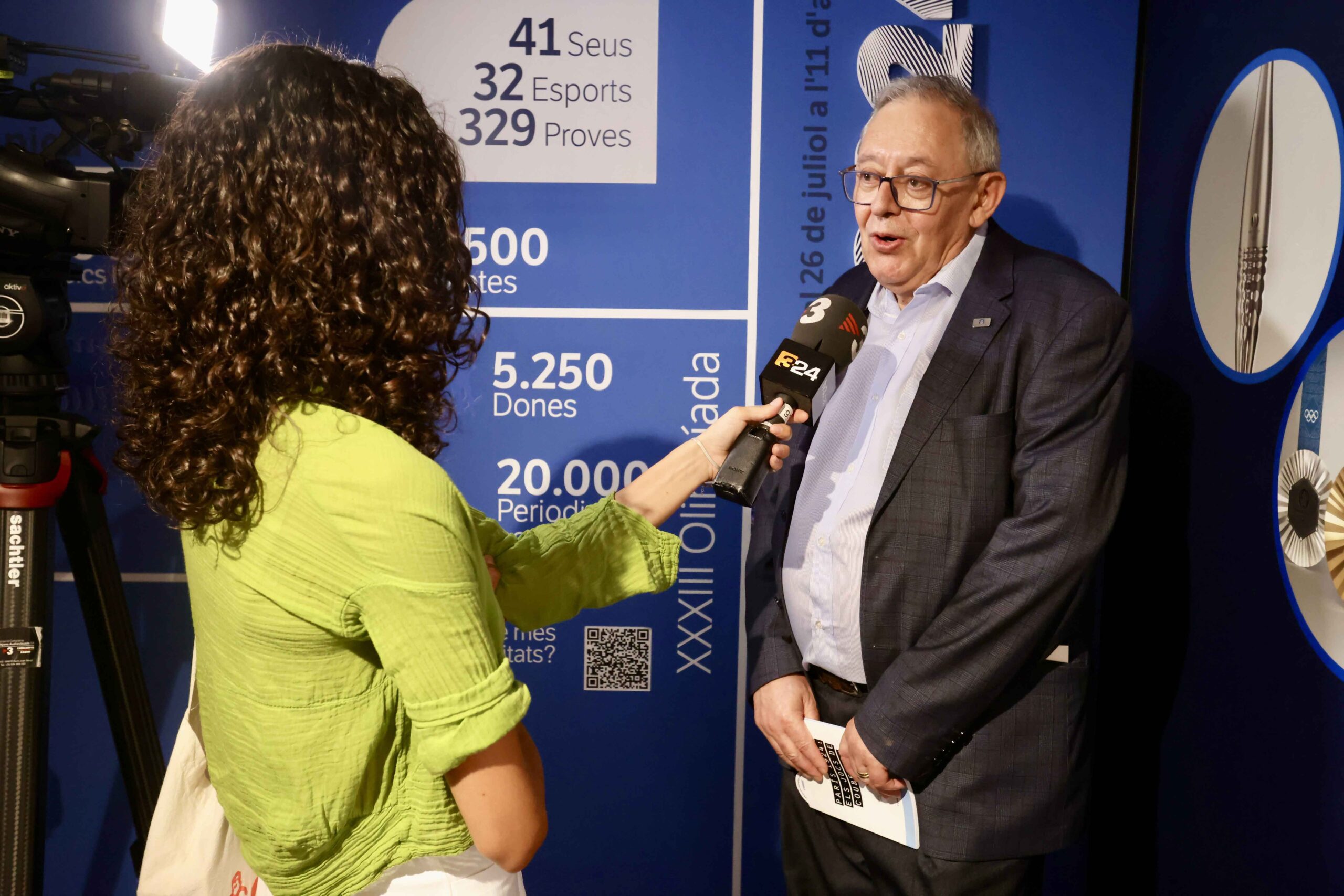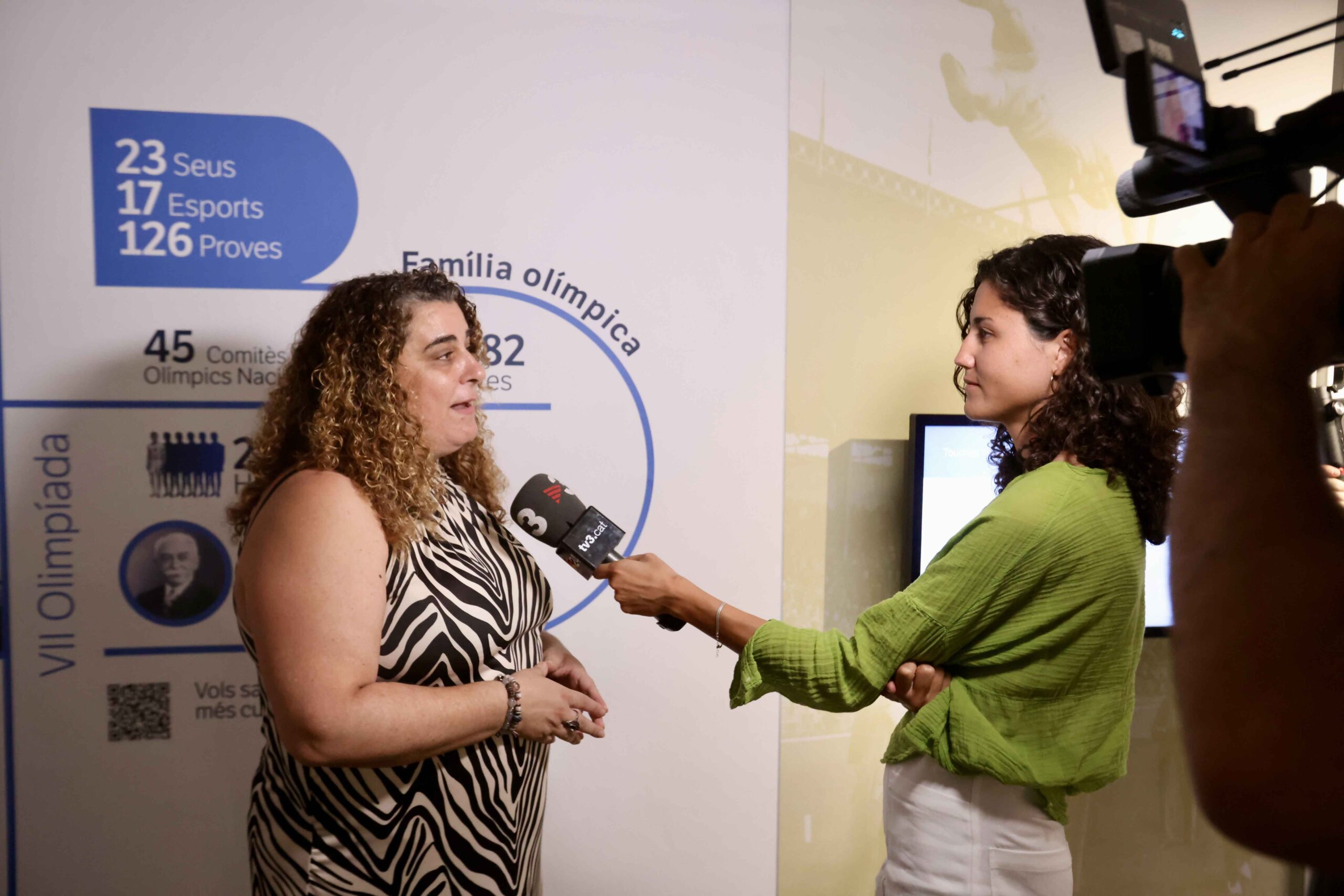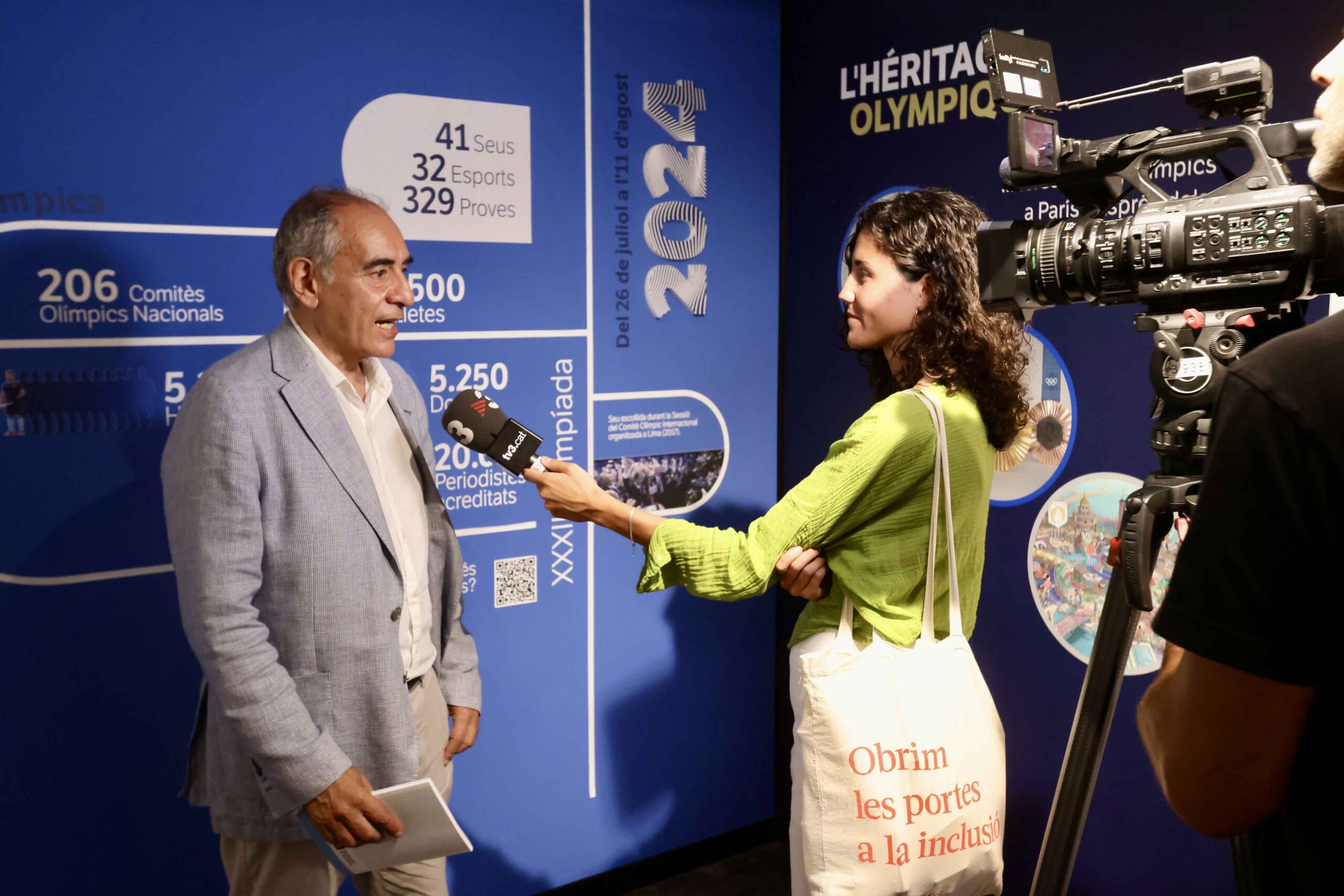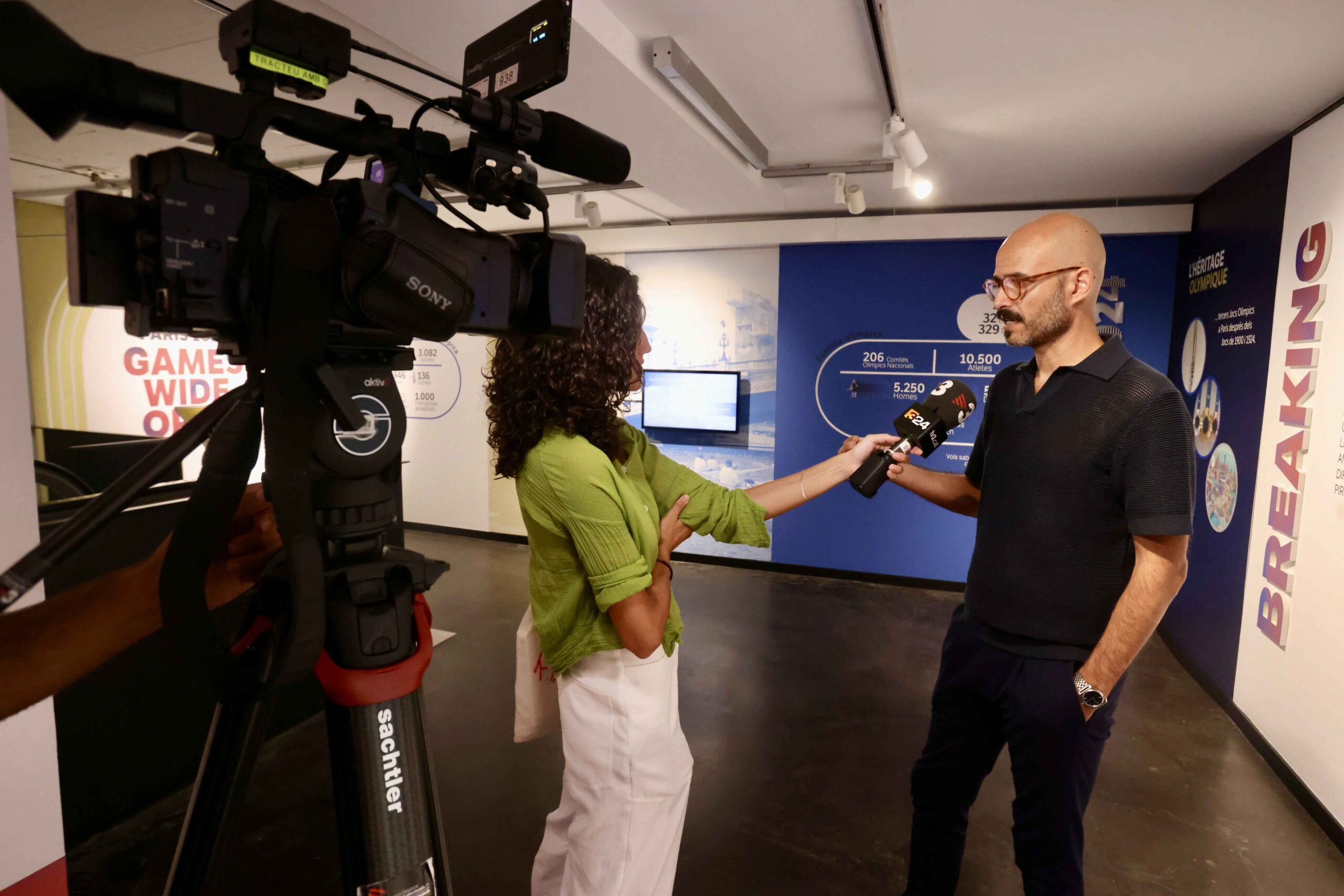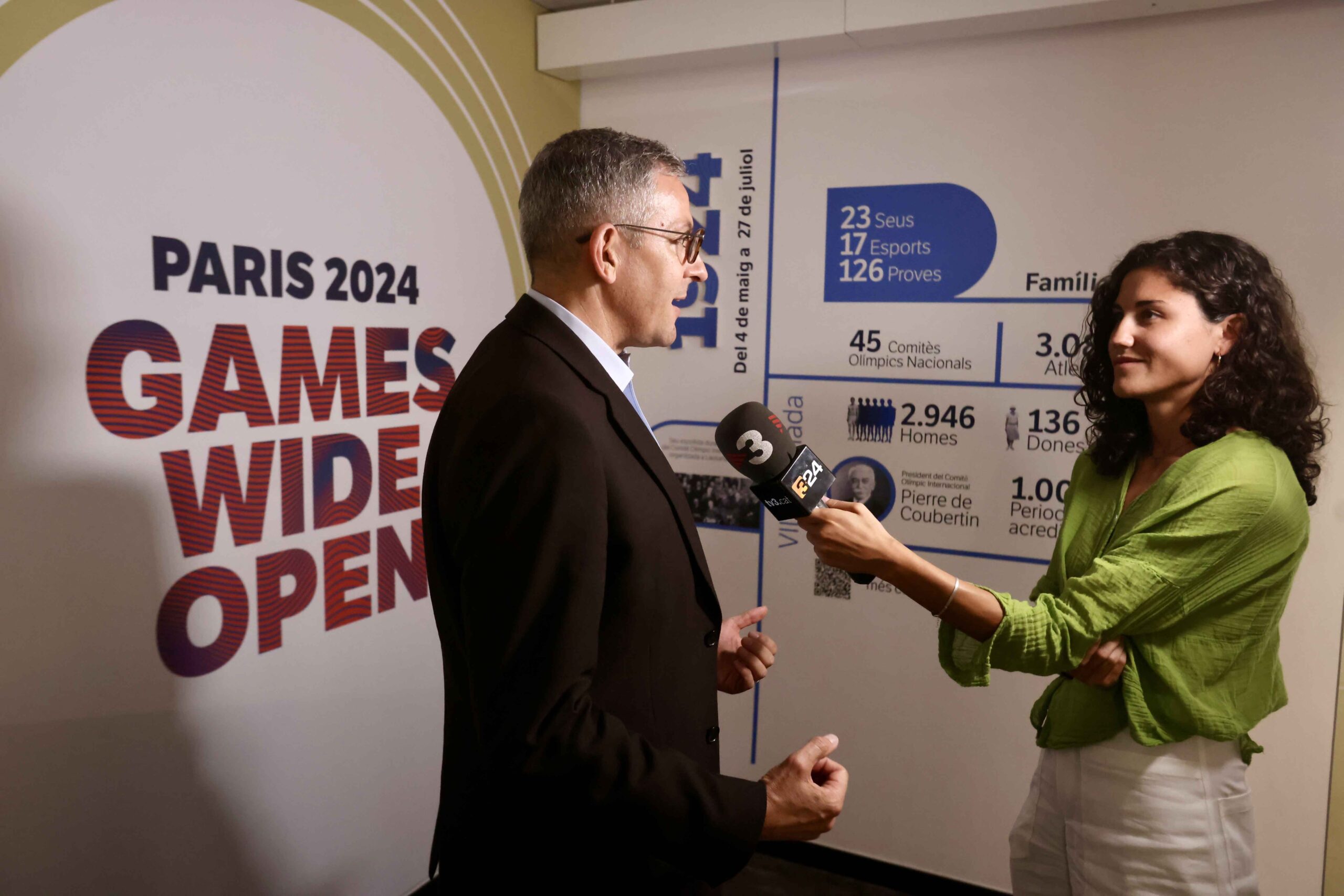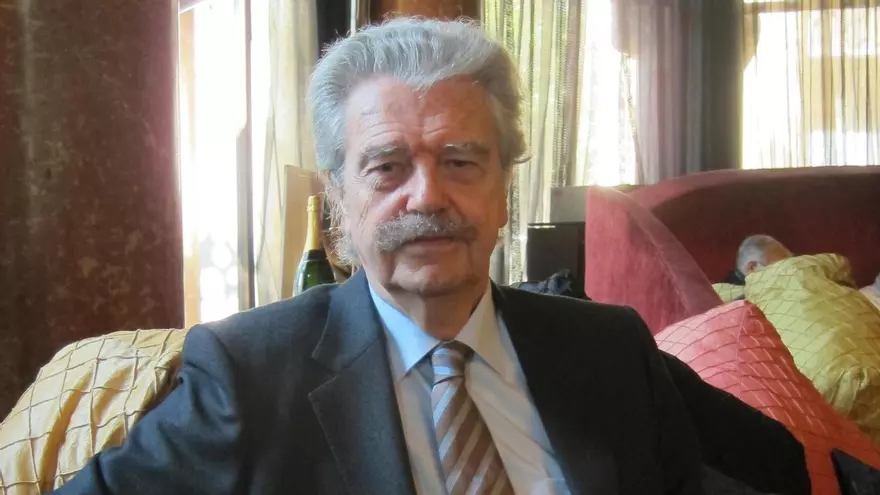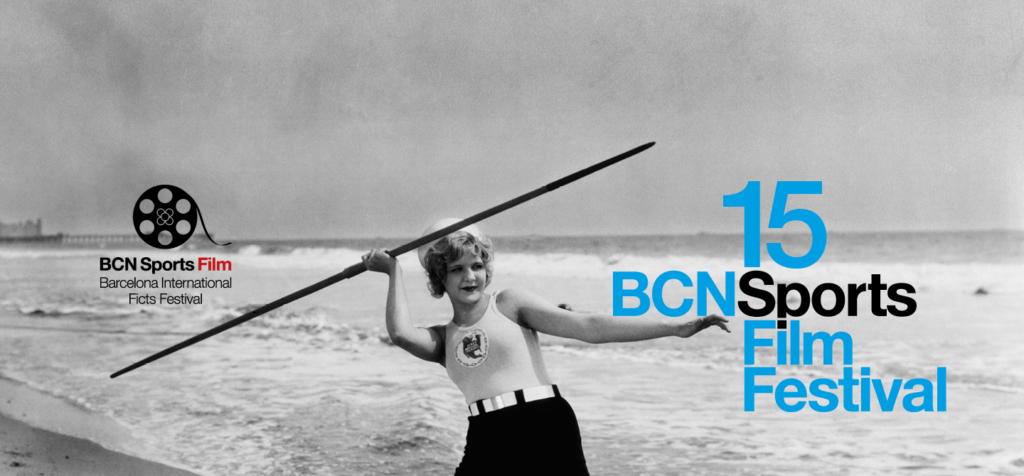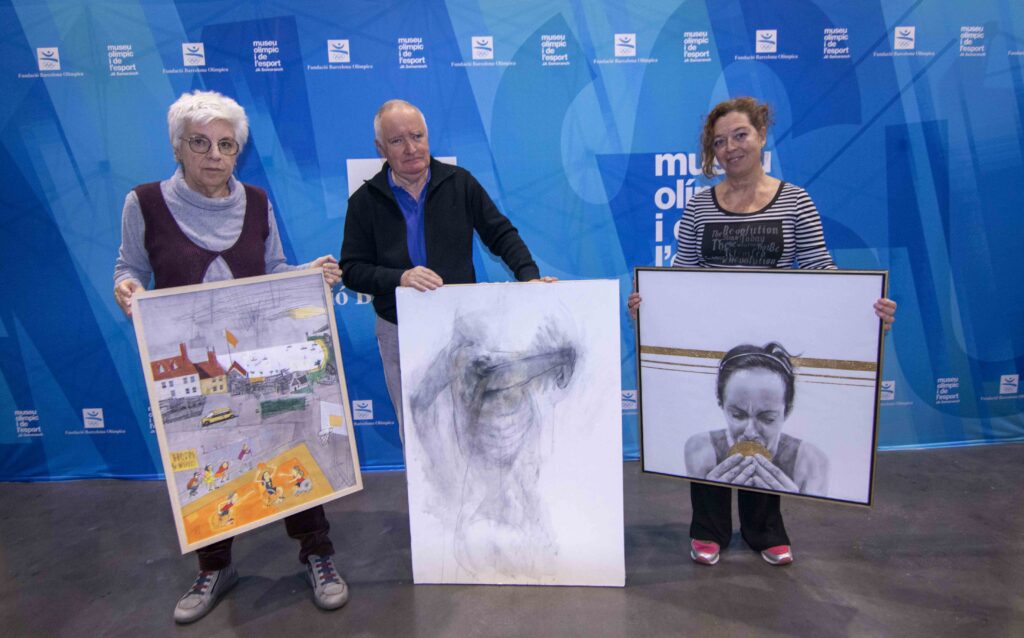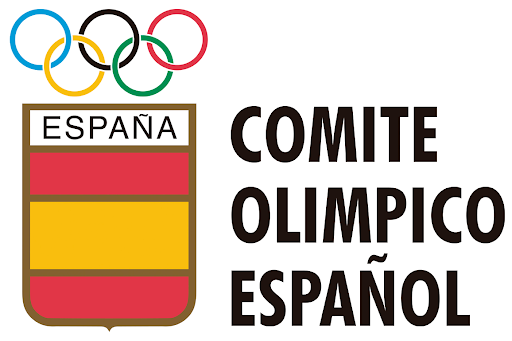The event was welcomed by Olivier Ramadour, Consul General of France in Barcelona and Francesc Terrón, director of the Barcelona Olympic Foundation and with the presence of the former General Secretary of Sport: Gerard Figueras, Manel Ibern and Rafel Niubó; members of the board of trustees of the Barcelona Olympic Foundation: María Teresa Samaranch, Enric Tru’ó and Juli Pernas; the former president of the Barcelona Olympic Foundation, Pere Alcober and the manager of the Barcelona Sports Institute, Susana Closa.
Joan Manuel Surroca, specialist in olimpism and collaborator of the FBO; Pedro Hern·ndez, expert in tennis and Aitor Lagunas, director of the magazine Panenka were in charge of contextualizing the Olympic Paris of 1924.
The session also had the collaboration of Maribel Zamora, vice-president of the UFEC and head of the Women and Sport Commission, and Valentí Ambrós, a recognized historian.
During the session, special emphasis was placed on the 1924 Olympic Games in Paris, a key event in Olympic history, for being Pierre de Coubertin’s desire to hold major Games in his city to redeem himself from the failure of the 1900 Games.
Among the highlights of these Games is the creation of the Olympic Village, exclusively for men, to welcome all athletes and delegates, this appearance highlights the importance that the Games began to have on a global scale. The issue of the danger of the participation of athletes such as tennis players or rugby players was also addressed due to their professionalism, a problem that was resolved years later under the influence of Juan Antonio Samaranch in Barcelona and the participation of professional athletes such as NBA players.
The Opening Ceremony was another topic of debate, where it was remarked that the delegations were not obliged to parade in sportswear, thus allowing to show their national identity in a more personalized way.
Another notable aspect of the 1924 Games was the great participation of Catalans, who made up approximately half of the Spanish Delegation, it should be remembered that Barcelona had been one of the candidates to host these Games. The presence of the Spanish Delegation was possible thanks to donations and collections through parties and events organized by the various clubs and associations.
This event served not only to remember the 1924 Paris Games, but also to reflect on how these past experiences continue to influence contemporary sport. The session concluded with the presentation by Joan Manuel Surroca of his book “Paris 1924: the Games of Coubertin”.

